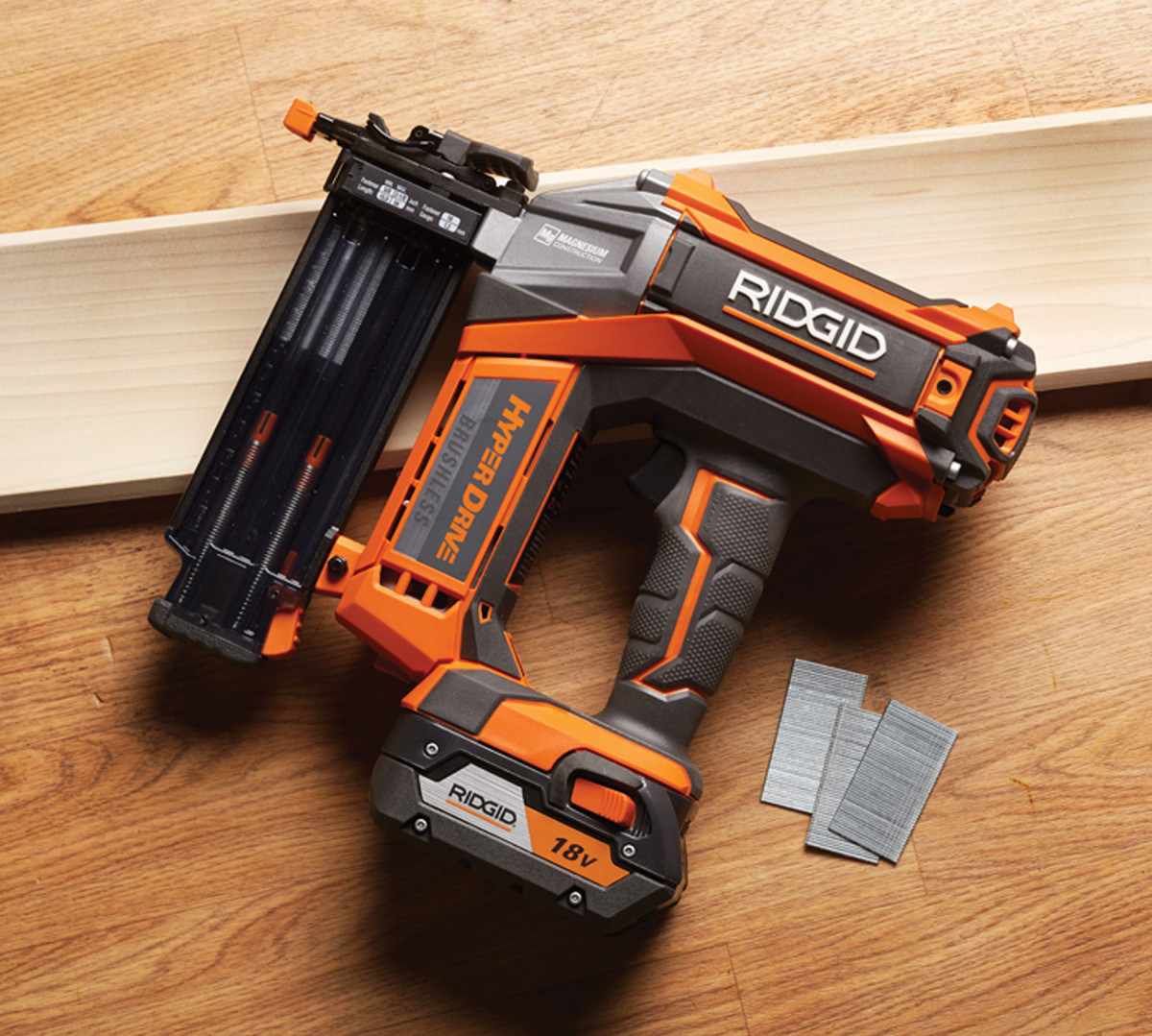We may receive a commission when you use our affiliate links. However, this does not impact our recommendations.
 Tool: Ridgid 18-volt ‘Hyperdrive’ 18-gauge Brad Nailer
Tool: Ridgid 18-volt ‘Hyperdrive’ 18-gauge Brad Nailer
Manufacturer: Ridgid
MSRP: $199.99 (Without battery)
If you’re working with access to electricity, it’s easy to plug in an air compressor and run a hose to a brad nailer. But if you’re working on a site with no electric, or your compressor hose is too short for the task, well, a cordless nailer is nice to have.
This new brushless-motor, 18-volt, 18-gauge version from Ridgid (model R09890; it does not include the battery or charger) works well, with no noticeable difference in power, compared to the Senco 18-gauge air-powered brad nailer we use in our shop.
At the rear of the tool is a power-adjustment lever. I simply set it on high, then adjusted the depth of drive (with a simple twist of a knob) as I switched among different-length brads and various types of wood (the R09890 accepts fasteners from 5⁄8” to 21⁄8“). These are both quick, toolless adjustments.
According to Ridgid, the tool will shoot 2,000 brads (or 2,600 linear feet)per battery charge, but I didn’t have that many nails to waste. I switched back and forth between the tool’s single-sequential and contact-actuation modes for about 30 minutes, and the battery was still three-quarters charged, according to the indicator lights.
The major difference – quite noticeable after a half-hour – between hoseless nailers and their air-powered brethren is in weight. Though the “HyperDrive” technology replaces the company’s older “AirStrike” technology with a lighter weight PVC and magnesium housing for the driving mechanism, it’s still heavy, weighing in at 7.64 lbs fully loaded, and with the lithium-ion battery attached. The air-powered Senco is a mere 2.72 lbs.
Still, with a lot of moulding to attach on a tall stairway, this Ridgid is certainly appealing.
Here are some supplies and tools we find essential in our everyday work around the shop. We may receive a commission from sales referred by our links; however, we have carefully selected these products for their usefulness and quality.








